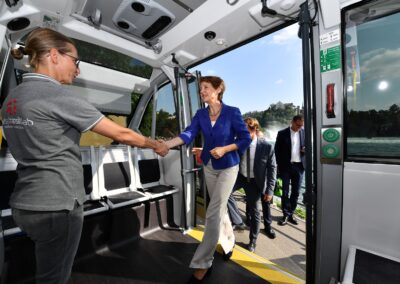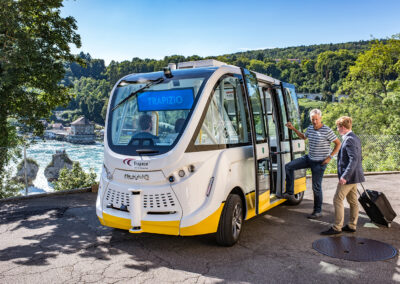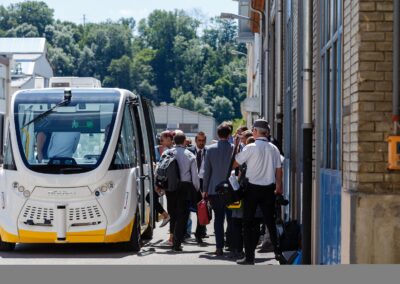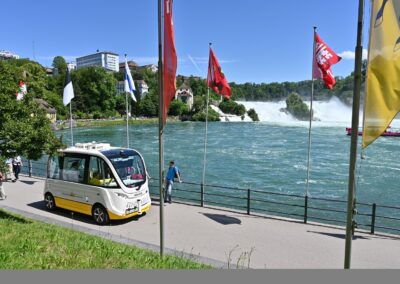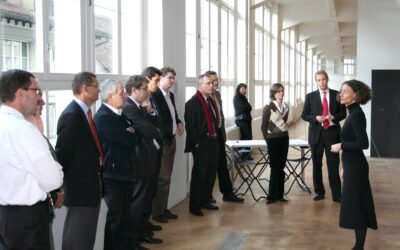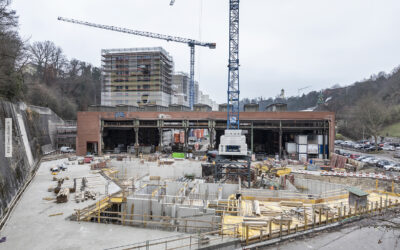Swiss Transit Lab
Mobility Solutions of the Future
Initial Situation
Driverless vehicles on the march
Driverless vehicles and electro-mobility were hot topics when these developments were first discussed in 2016. A wide range of players in the mobility sector (manufacturing industry, fleet operators, municipalities, universities etc) were keen to put these new forms of mobility to the test in real-life situations.
Thanks to the unbureaucratic, business-friendly stance and easy access to decision makers in the Canton of Schaffhausen, a regional development initiative launched by Generis AG quickly gained traction and established a common purpose and shared structure: the Swiss Transit Lab, created as a Public Private Partnership.
Project Profile
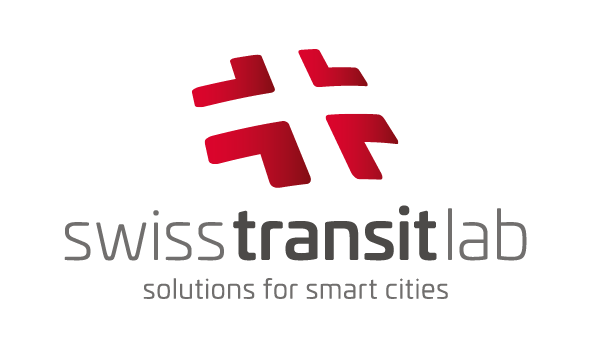
Passengers transported
Smart City Innovation Award
Approach
Connectivity for Smart Mobility
Stakeholders in manufacturing, transport operators, government and universities were all keen to be involved in exploring aspects of driverless vehicles and electro-mobility. Initiatives by individual stakeholders were limited by lack of wider expertise and costs.
Creating a joint initiative, as a separate entity (an association, under Swiss law), enabled these efforts to be shared, resulting in the Swiss Transit Lab. The creation of suitable governance structures – management tiers and topic-focussed committees – enabled resources, decision making and activity to operate efficiently and for the benefit of all stakeholder groups.
Achievements
Breeding ground for Smart City projects
In addition to creating «Route 12» which is serviced by a driverless bus in Neuhausen and at the Rhine Falls, the Swiss Transit Lab was the breeding ground for other Smart Mobility projects such as “Bus Stops of the Future” and the “First / Last Mile”. The capabilities extend beyond being a test-bed just for mobility solutions, however.
The Swiss Transit Lab also tests applications for the intelligent city of tomorrow. Examples include the integration of a passenger lift into the public transport management system (Smart Infrastructure) and automated health monitoring of the driver and passengers in a vehicle (Smart Health).
Generis Project Team
Similar Projects
Implementation Program
Regional development strategy
Visions for Schaffhausen
Participative Process
The Steel Foundry
Revitalisation of industrial heritage
